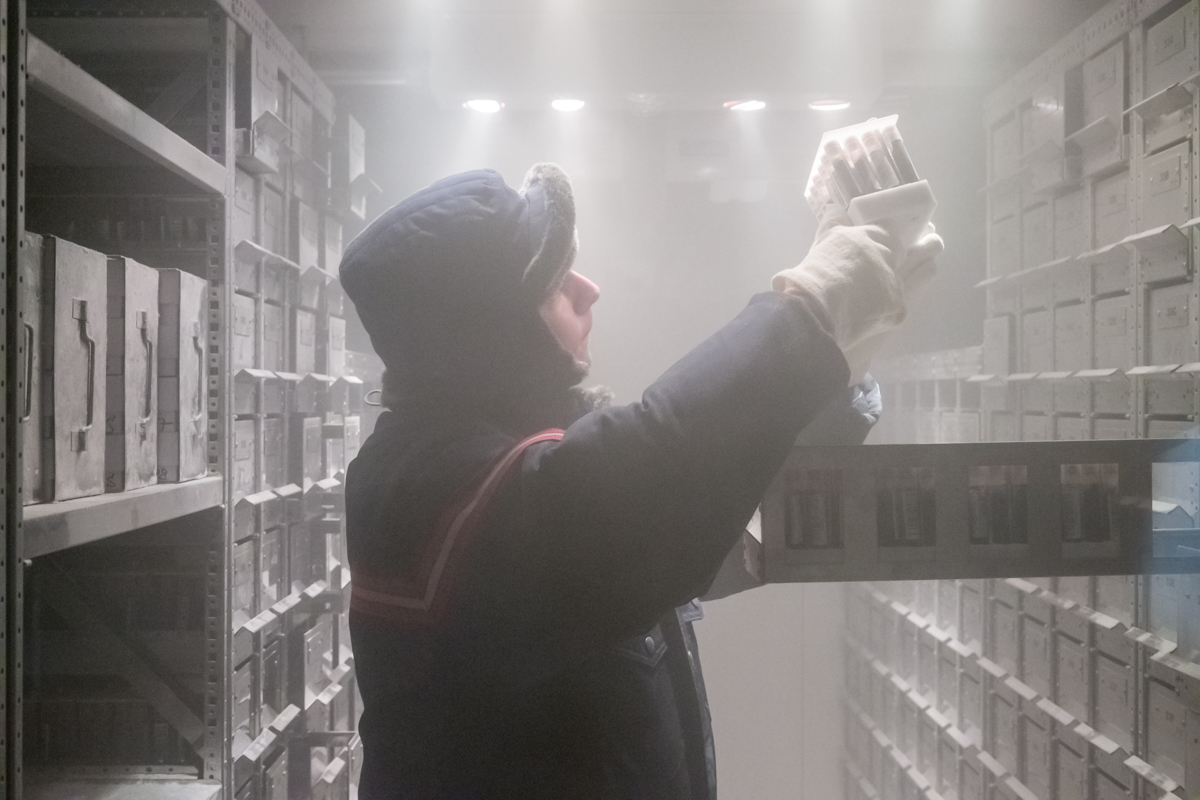2021-05-12
BioMaterialBank Nord paves the way for a DZL broad consent for children

Storage of patient biomaterial for research in a biobank
Following the positive vote of the ethics committee at Lübeck University, DZL implements a broad consent for children. ARCN’s biobank BioMaterialBank Nord was in charge of this project. The broad consent allows the use of residual biomaterial which that hasn’t been used for diagnostics. The broad consent for adults has been successfully applied for several years now.
During the last years and especially during the corona pandemic, it became increasingly apparent how important it is for medical research that patients donate biomaterial.* A crucial step for pediatric lung research has been taken now by ARCN’s BioMaterialBank Nord: PD Dr. Karoline I. Gaede (Research Center Borstel) and Gesine Richter (University Medical Center Schleswig-Holstein, Campus Kiel) developed a broad informed consent for children, youth and their parents. The document just received a positive vote by the ethics committee at Lübeck University. All DZL biobanks might use it now. The project was carried out in close collaboration with the German medical ethics committees (Arbeitskreis der medizinischen Ethikkommissionen, AKEK).
Not only study-specific biomaterial (in conjunction with clinical data) is important for science, also residual material** – e.g. blood, urine, saliva – that remains after diagnosis or surgery and would be discarded. Biobanks ask patients immediately after arrival at the hospital for permission to collect data and residual biomaterial. At this point, it is often unknown for which projects these collections will be used. Therefore patients are asked for a broad consent. This enables versatile use in different research projects.
A broad consent for adults has been used for several years throughout Germany. Also the partner institutions of the BioMaterialBank Nord of ARCN*** use this broad consent which had been harmonized between all DZL clinics and biobanks. The complementary broad consent for children and youth has been discussed by European researchers for a long time.
Karoline Gaede, Head of BioMaterialBank Nord, recognized and collected the demands of pediatric DZL researchers early. Concerning the necessity of a pediatric broad consent she comments: “Research on biomaterial and clinical data of underaged persons has high relevance: Many medications are tested and approved only for adults. Usage in children is then often just downscaled based on the body weight. This neglects that the young person’s organism might react in a different way because of a varying hormonal balance or a premature immune system.”
Gesine Richter, medical ethics expert from Kiel and counseling DZL on ethical aspects, developed the template text with Karoline Gaede. She adds: “Ethical implications of a broad consent for children and youth are more complex, because they might have consequences for other family members. First, parents give consent for their children. Additionally, we ask for acceptance of children and youth and thus respect their right of self-determination.”
The new pediatric broad consent of BioMaterialBank Nord will facilitate future scientific projects with research questions that are unknown today. An ethics commission has to approve the way of usage prior to provision of data and samples by the biobank. In the framework of DZL, the ALLIANCE asthma cohort will start using the new broad consent. ALLIANCE is studying the course of disease in more than 1.000 people over the whole life span. Representatives of all DZL sites will be introduced in using the broad consent in a kick off webinar. The pilot phase will be accompanied by evaluation at all five sites.
* Research projects in life sciences often use cells or tissues. These are human or animal culture cells or animal models which enable important basic research. Though there are limits and disadvantages: human diseases often differ from animal diseases and cannot be modeled. Moreover, animal testing bears ethical implications. Cell cultures often use „immortalised“ human cells. These cancer cells are easy to culture, but don’t represent reality very well. Therefore, work with biomaterial from patients is so important. Specific clinical studies have to be approved by medical ethics commissions. If there are no ethical concerns, scientists are entitled to ask volunteers to participate in a study e.g. by giving a blood donation. Therefore, they sign an informed consent. In this case, blood samples and clinical data can only be used for the stipulated project and have to be destroyed after end of the study, because only consent for participation in this specific study (and not a broad consent) has been given.
** Residual material can be blood or urine, initially taken for medical purposes. Excess material not used for diagnostics has to be discarded in the clinic. Residual material might also be tissue from tumor surgery. Storage of such material (with a broad consent) is useful, although the research project where it can be used is unknown at time of collection.
*** Partner institutions of BioMaterialBank Nord of ARCN are:
- Medical Clinic at Research Center Borstel
- LungenClinic Grosshansdorf
- Medical Clinic III as well as Pediatric Clinic of University Medical Center Schleswig-Holstein, Campus Lübeck
/jbul
Calendar
Upcoming events
2024-04-24
74th Meeting of ARCN
2024-04-30
Virtual DZL AID Kick-off Seminar
2024-05-29
